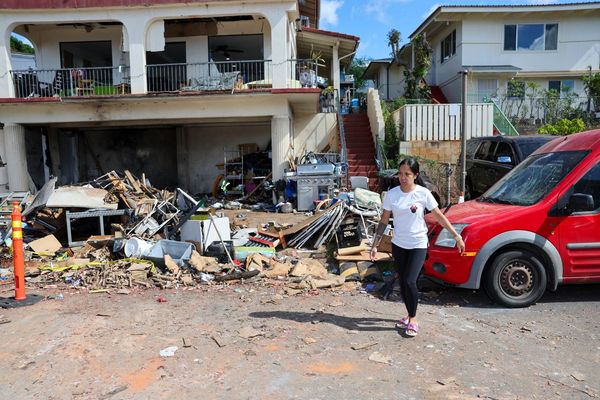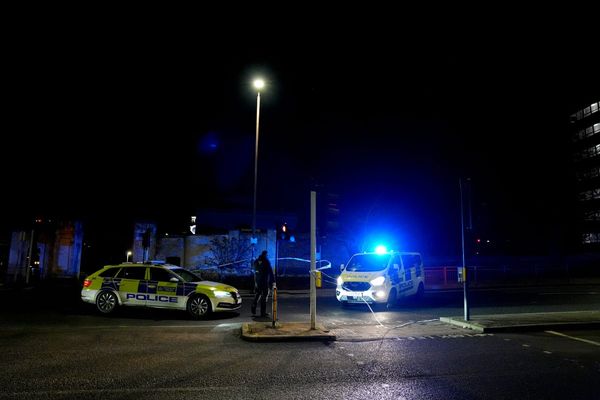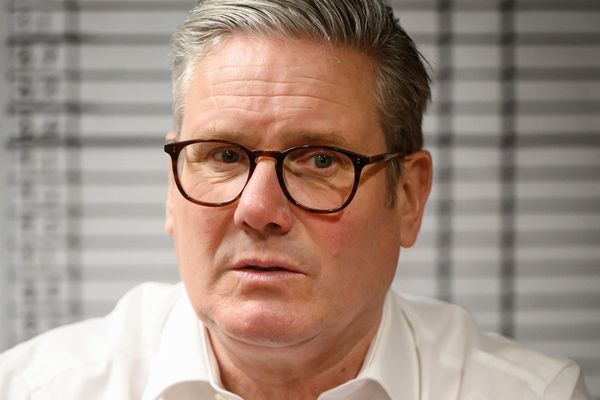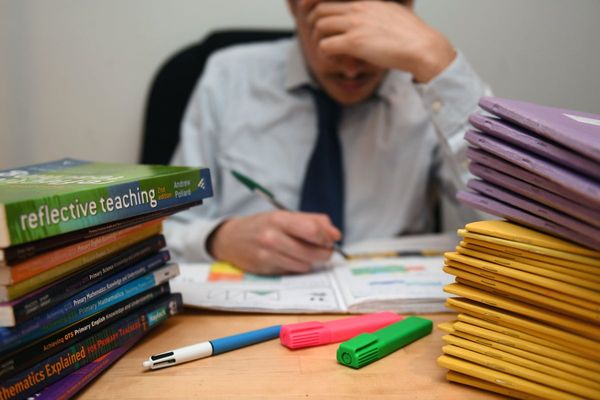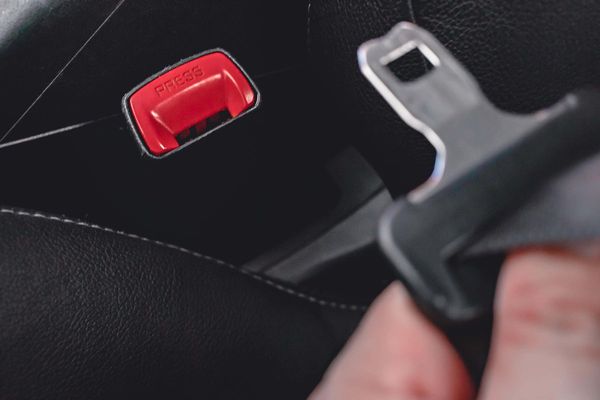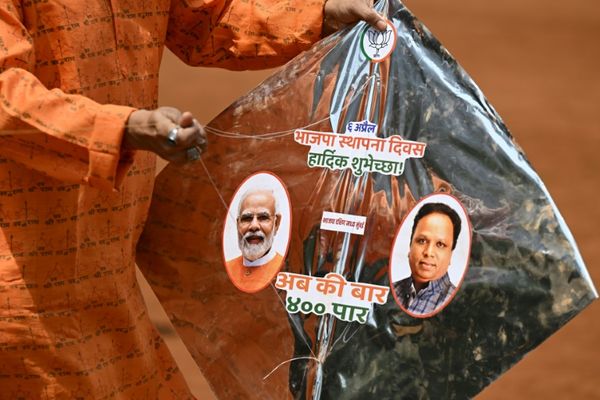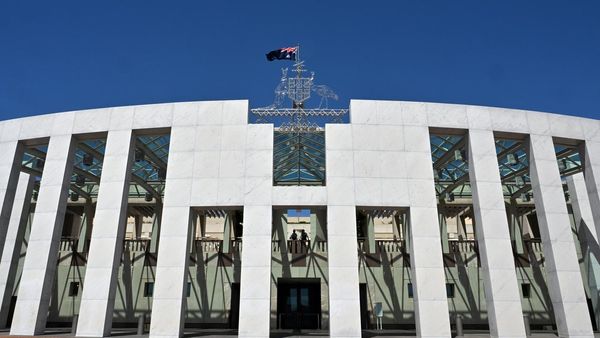
Apparently debunking Bob Katter’s claim that every Australian child was given a rifle in the aftermath of World War II, or contesting Malcolm Robert’s claim that there are jail cells underneath Parliament House “benefits the left”. Confused? Me too.
The Institute of Public Affairs has released a report condemning Australian fact-checking organisations RMIT ABC Fact Check, AAP FactCheck and RMIT FactLab. The right-wing think tank’s analysis of fact-checks published between January 2019 and February 2024 aimed to determine whether the outlets had “exhibited partisan political bias or preferential treatment”.
The institute concluded the organisations delivered verdicts that were “favourable” to left-of-centre politicians 65% of the time and to right-of-centre politicians just 35% of the time. It was implausible, the IPA reckoned, that one side of politics was more prone to error; instead it concluded that staff across all three fact-checking organisations were biased.
The report randomly assigned motivations to these journalists — for example, debunking claims like “Dettol can treat COVID-19” was actually fact-checkers trying to bolster support for governments’ pandemic responses.
AAP FactCheck journalist William Summers rightly dismissed allegations that fact-checkers unfairly targeted “critics of the official response to the pandemic”, pointing out that most of the articles the IPA analysed were debunks of conspiracy theories, including claims that 5G towers cause COVID-19 and that bleach could cure it.
“So [the] IPA position appears to be that it’s now ‘woke’ to correct dangerous health misinformation that could kill people? Extreme and irresponsible.”
The three areas the IPA focused on in the report were COVID-19 policy, climate policy and issues relating to identity and sexuality. There is no explanation for why the three issues chosen conveniently align with the culture war topics that have also preoccupied the minds of the nation’s conservatives for the past four years.
The IPA’s methodology is beyond flawed. The first stage involved clocking how often the reporters investigated claims by politicians and then ruling whether their verdicts “favoured the political left or the political right”.
I have no idea why it would “benefit the left” for Australians to know that the prime minister is not in fact entitled to a parliamentary pension in excess of $400,000 per year; taxpayers have different political preferences.
Conversely I don’t think the “political right” necessarily benefits from a fact-check that found that actually, no, the Coalition wasn’t going to force all age pensioners onto cashless welfare cards. I’d assume the elderly people who anxiously watched that lie spread like wildfire across their Facebook feeds benefited most from accurate information, regardless of their political preferences.
Does only the “political right” benefit from a fact-check that found that Josh Frydenberg’s campaign poster was in fact graffitied with a swastika? Surely all Australians gain something from understanding the horror of antisemitism was indeed present during the federal election campaign.
The IPA report was dutifully and, predictably, uncritically puffed up in News Corp’s papers. A generous reading, informed by the three years I spent at The Australian, is that reporters and columnists pushing the narrative that fact-checkers are political operatives do so because they’ve spent so long at publications where editors do indeed funnel their political agendas through their underlings that they can’t even fathom an editorial process that prioritises facts over feelings.
It’s enough to make most journalists jealous. Imagine not comprehending that some of us write or publish content you don’t always personally agree with! Everything is a team sport to the outlets and politicians waging a war on fact-checkers in which “truth” becomes a trophy to be awarded rather than a fact to be established. If everything is a team sport and your team keeps losing, why not campaign to declare the whole tournament invalid?
As Crikey’s associate editor Cam Wilson has documented, frontline staff at fact-check organisations are fatigued from the constant attacks from politicians and media outlets. The number of international third-party fact-checkers grew tenfold in just over half a decade, from 44 in 2014 to 419 in 2021 — finding extra utility in the US during Donald Trump’s presidency and in the UK with the debate around Brexit.
But as Wilson outlined, the global campaign has been somewhat effective: last year the number of international fact-checking organisations shrank while social media platforms rolled back some of their misinformation measures, and teams tasked with combating misinformation inside tech companies were slashed.
While I was writing my book, after completing the necessary training, I took a few months’ worth of shifts as a reporter at AAP FactCheck. We were aided by a Meta tool that filtered likely misinformation and showed those posts that were going most viral.
Some popular posts were funny — one of the first popular images I clicked on was claiming the black tapioca balls in bubble tea were goat shit — but mostly it was terrifying watching people share in real-time blatant misinformation during a pandemic as the shares, likes, comments and follower counts grew exponentially.
The editorial process in that newsroom is still the most rigorous I’ve ever worked with; the finished product was so satisfyingly well-sourced. The only time I considered wasted by the end of my shift was that I’d spent scouring transcripts, press releases, Facebook posts and tweets trying to find misinformation where there was none, so that we might have an extra claim by a centrist or left-wing figure.
I think the only way for journalists to gain public trust is to be as transparent as possible, and so I hope my former colleagues won’t mind my indiscretion when I say it was sometimes a struggle to find more people on the left to fact-check.
There was a weary frustration that the same right-wing conspiracists with mammoth social media followings and conservative politicians were repeatedly spouting nonsense. Politicians from Labor and the Greens, as well as the independents, slipped up enough to find lines worth checking, but what I witnessed in that period was that misinformation was overwhelmingly shared by Coalition politicians — who, it should be noted, were at that time in government — and quite often One Nation politicians too.
It is entirely plausible that misinformation from left-wing public figures was missed, just as it is entirely plausible that some politicians were sharing more easily debunkable claims than others. Reporters rely on scientific consensus, expert interviews and academic literature for fact-checks, making sure to be transparent about their sources, whether the reader trusts or agrees with them. When they get it wrong, there are correction policies in place so readers are aware of when and why a mistake occurred, and specifically what has been changed.
I’m yet to see a politician found to be telling porky pies issue a correction, and it isn’t a coincidence that those who have been called out most often for their lies are most opposed to fact-checking itself.
Liberal Senator Gerard Rennick has been fact-checked for many things, including falsely claiming that greenhouse gases don’t heat the earth, that the Australian government had permitted doctors to administer COVID-19 vaccines under anaesthetic without a patient’s consent, and that the vaccines also caused thousands of excess deaths. Rennick seems to misread not only scientific evidence but literature, declaring “fact-checkers” an “Orwellian term”, as though that writer’s oeuvre didn’t have a little more to say about unthinkingly spreading unverified propaganda.
Research has shown that fact-checks aren’t going to change your long-held political or social beliefs, but they can have a “significantly positive overall influence” on your factual understanding. Further, “in all countries studied, fact-checks reduced belief in misinformation” while the warning labels attached to online content “effectively reduce belief and spread of misinformation”, crucially even for those “most distrusting of fact-checkers“.
Fact-checks are useful not just for debunking outright bullshit but for adding necessary context that politicians deliberately leave out. Prime Minister Anthony Albanese was technically correct when he said he travelled overseas less than Scott Morrison in his first 12 months, but as RMIT ABC Fact Check pointed out, he’d made just one fewer trip (11) than his predecessor, who took 12.
There is research to be done and debate to be had about whether siloed fact-check organisations are the most effective structure to get accurate information to people. In a perfect world, all journalists would have more time and paragraphs to dedicate to verifying rather than just reproducing the words of those in power. For now, as newsrooms contract, the painstaking and time-intensive work of fact-checking can seem like a luxury indulgence, but it has never been a more essential investment.
This year there are a record number of national-level elections being held, and every person who wants to live in an informed democracy benefits when people with power — whether wielded in your parliament or algorithm — are held to account for spreading bullshit.
